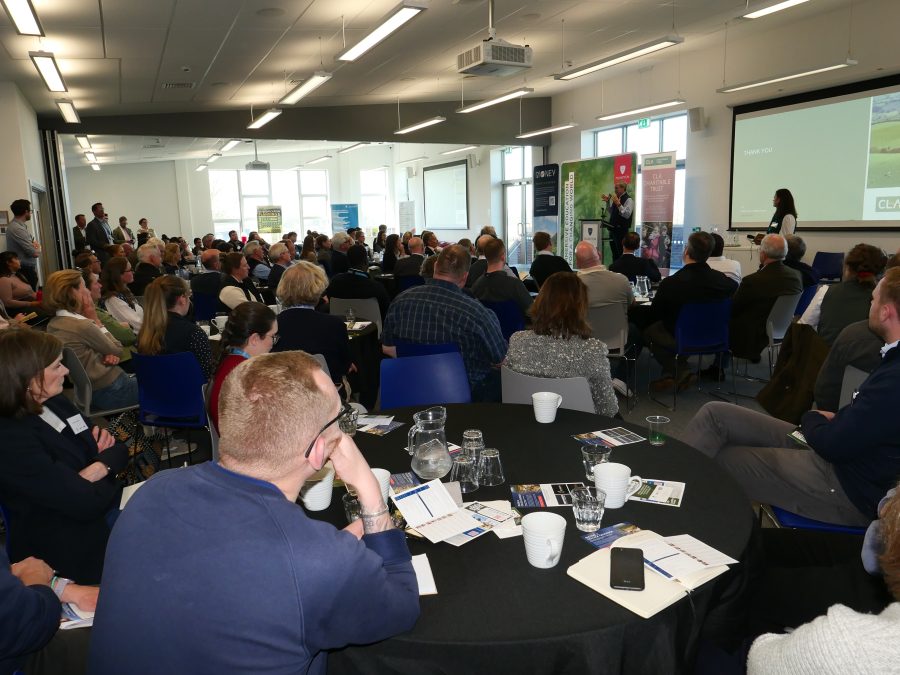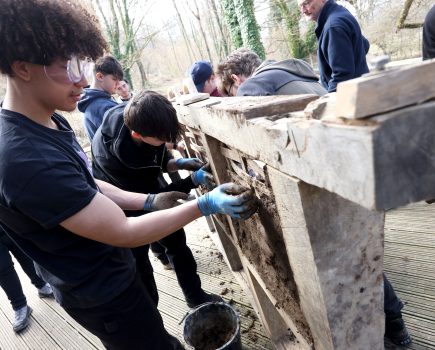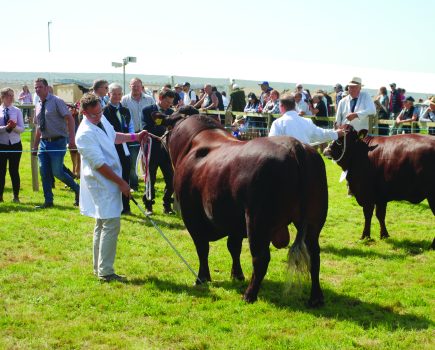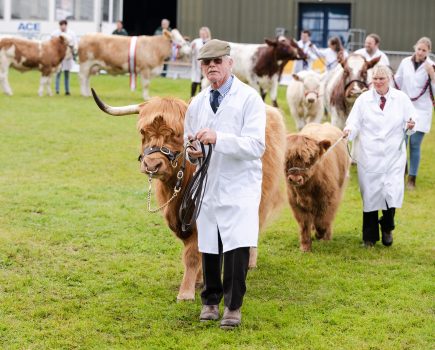The remarkable resilience of the region’s farmers was highlighted at this year’s South East Future of Farming conference, held in the impressive surroundings of the AgriFood Centre at Plumpton College.
Given the unremitting pressure on farmers from tumbling grain prices, the changing climate, no-notice changes in government taxation policy, the abrupt end of basic payments and the unannounced decision to halt applications to the Sustainable Finance Incentive (SFI) – to name but a few current hurdles – it was remarkable that the organisers were able to find anyone prepared to talk about the future.
The fact that they came up with no fewer than five great speakers, each of whom not only had plenty to say but shared positive, constructive suggestions for that future, was a remarkable tribute not just to the organisers but to the sheer determination of farmers to ‘keep on keeping on’.
The result was another fascinating afternoon, organised by Plumpton College and the Country Land and Business Association (CLA) South East, sponsored by Virgin Money and followed by a chance to network over a fine spread of college-prepared food and local beer and wine.
The speakers were well chosen and varied in their background and expertise, while the event was well chaired by Molly Biddell, head of natural capital at Knepp Estate and whose other roles include facilitating the Upper Adur Farming Cluster Group.
After a brief introduction by college principal Jeremy Kerswell, who set the scene by stressing “the world is changing”, the conference heard first from Gavin Lane, CLA deputy president and an arable farmer.
He immediately addressed the most recent challenge faced by environmentally aware farmers and landowners by pointing out that by calling a halt to SFI applications without any notice – something which was not on anyone’s horizon as the conference was being planned – the Government had “stymied” farmers. Moreover, ministers had not offered much of a clue as to the future direction, he pointed out.
Quoting boxer Mike Tyson – “Everyone has a plan until they get punched in the mouth” – Gavin pointed out that farmers’ hopes that the incoming Labour Government would bring some stability to the industry had not been fulfilled.
Highlighting the challenges facing farmers, from the end of basic payments to the probability that future funding for higher level stewardship schemes was likely to be “less generous”, he rallied the audience by pointing out “things do change” and urging those listening to focus on long-term goals, go “back to basics”, set a five-year budget and look carefully at all aspects of the business.
He also suggested that those who were on SFI or other environmental schemes should not think of them as a subsidy. “A contract to deliver public good is no different to a contract to deliver dentistry to the NHS or a contract to build a bridge,” he stressed.
Gavin was followed by another straight-talking speaker, Emily Norton, a lawyer with an MSc in sustainable agriculture and the co-founder of Nortons Dairy.
In what was at times a refreshingly challenging presentation, she warned that campaigners waving ‘no farmer no food’ placards were mistaken, “because a farmer somewhere will grow it cheaper, even if they are overseas,” she warned. Farmers, she said, had to fight for their markets and were “not entitled” to grow food.
Emily warned that one concern around farmers following the environmental route was that the link between the legislative framework as set out in the Government’s Environmental Improvement Plan and the incentives on offer via the SFI scheme was not clear enough.
Suggesting that those links were being reviewed and were likely to lead to tougher regulations, she warned that future funding was likely to be directed towards more specialist environmental challenges, “not ordinary, profitable lowland farms”.
Warning that with other industry sectors switching to electric power more quickly, farming’s impact on the environment would begin to account for a greater proportion of the UK’s carbon footprint, Emily stressed the need for farmers to reduce their reliance on carbon and pointed out that this would also reduce their costs.
Summing up, she said: “One – there’s stuff coming; two – we can make the most of it.”
For those looking for statistics as well as inspiration, there was plenty on offer from Rupert Claxton, whose 20 years’ experience in meat and livestock sector research with Gira underpinned his thoughts on the future for livestock farmers in the South East.
He stressed that while UK consumers might be cutting back on meat consumption, countries elsewhere in the world were demanding more protein as they became richer. “You can’t ignore world demand,” he pointed out. With demand growing and prices good, his was a positive message backed up by detailed figures.
At the younger end of the speaker spectrum, 25 year-old Archie Evans told the audience how the family fruit farm near Chichester had at one time employed 180 people and used specialised lighting and gas heating to grow soft fruit for supermarkets, packing everything in plastic punnets in what was a multi-million pound business.
Having realised that the operation was far from sustainable in many respects, not least personally, because of the stress involved, the family closed the business. It was at Archie’s prompting, after he returned from Harper Adams University with a degree in agricultural engineering, that the family returned to fruit production.
Now the family business sells fruit as Berries On Tap, using cardboard punnets and selling from purpose-built, farm gate vending machines. The punnets cost more than five times as much but are biodegradable and compostable, the energy hungry gas burners and specialist lighting have gone and the workforce has been slimmed to 10 people.
Archie is collaborating with other companies on new, sustainable business ventures and is experimenting with productive uses for waste products including compost, carbon dioxide and water. And while business is booming, the important thing for Archie and his family is that they are enjoying “a much better quality of life”.
Diversification was an appropriate topic to round off a fascinating afternoon, with Owen Piper outlining the changes that have taken place on the family farm, where solar PV, holiday lets and a vineyard are among the contributors to the income stream.
After confessing that there was “no structured planning” behind the various enterprises but that the family had “just made decisions at the time”, Owen explained that two-thirds of the income still came from arable and livestock farming, with zero-till cultivations supported by 2,500 tonnes of cattle manure. The business is also entered into stewardship schemes, while the vineyard covers 60 acres.
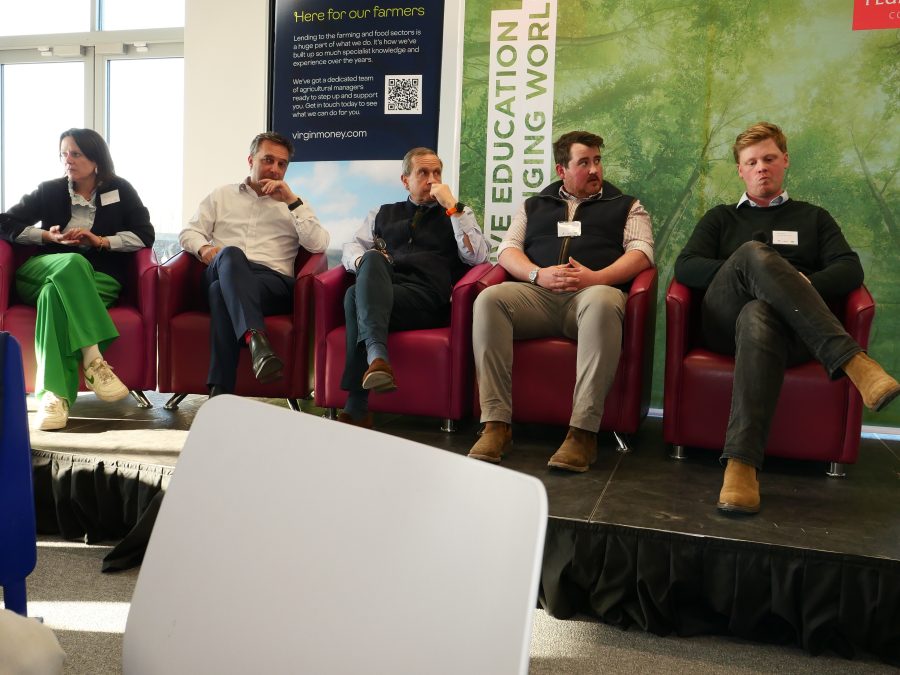
For more like this, sign up for the FREE South East Farmer e-newsletter here and receive all the latest farming news, reviews and insight straight to your inbox.

